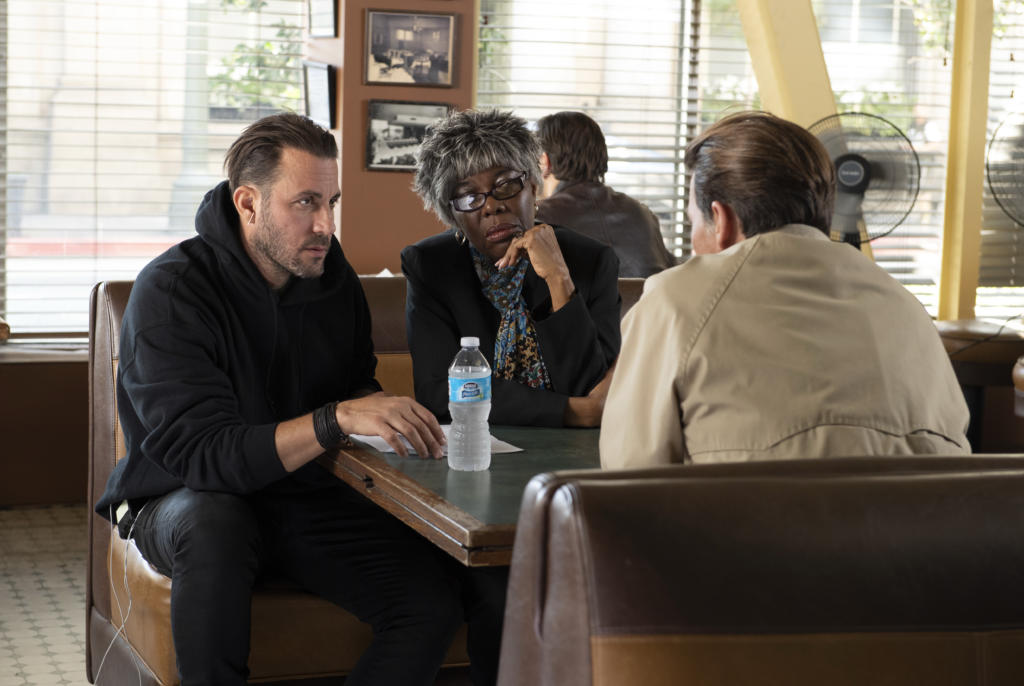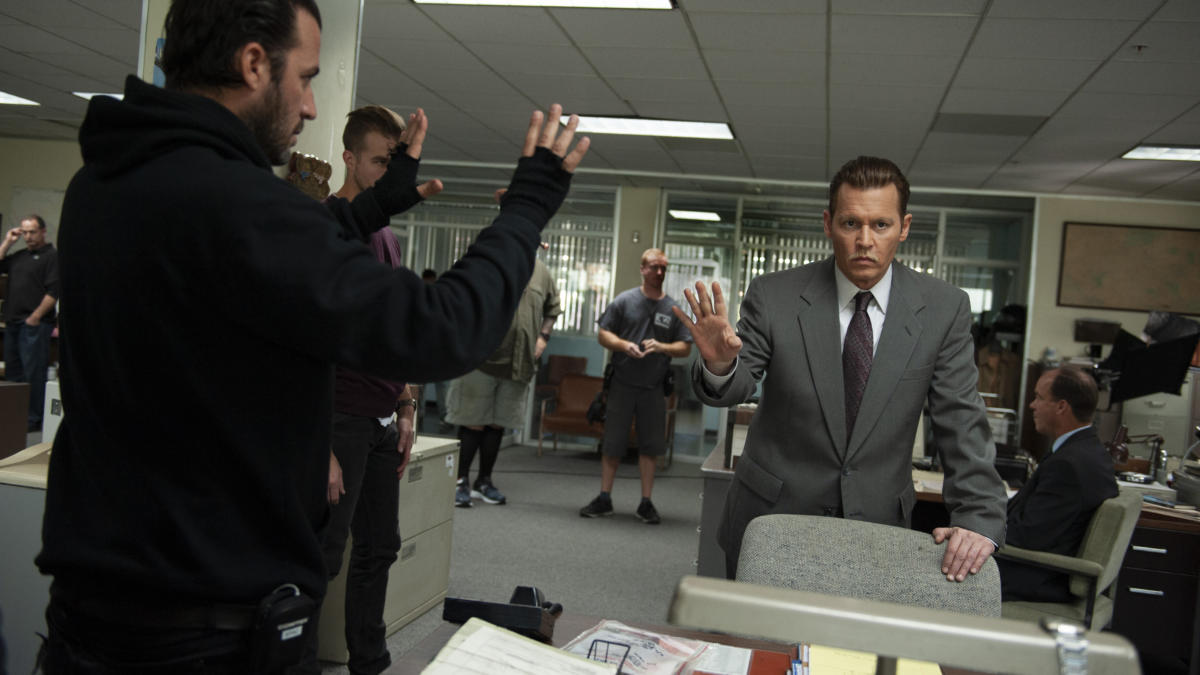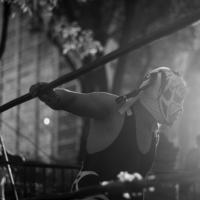Philadelphia native Brad Furman has captured the story of Biggie Smalls’ last days.
He’s put it together in a film for the big screen as director of “City of Lies,” which was recently released into movie theaters and is now available on premium video on demand.
Based on the book “LAbyrinth” by Pulitzer Prize-winning author Randall Sullivan, “City of Lies” is a compelling crime thriller that follows the investigation into the 1997 murder of iconic rap artist Christopher Wallace – a/k/a, The Notorious B.I.G.
Oscar nominee Johnny Depp stars as determined LAPD detective Russell Poole, who spent nearly 20 years trying to solve the murder, and Oscar and Primetime Emmy winner Forest Whitaker stars as Jack Jackson, a journalist who teams up with Poole in search of the truth. Together, they explore why the case remains cold – and why a secret division of the LAPD is seemingly set on keeping it that way.
Shot on location in Los Angeles, the film takes an unflinching look at late-90s corruption, race relations and the lengths one man will go to uncover the truth. Furman produced original music for the film, including tracks with The Notorious B.I.G.’s a capellas.

Furman’s other films as director include “The Infiltrator,” starring Bryan Cranston, John Leguizamo, Diane Kruger, Benjamin Bratt, Amy Ryan and Yul Vazquez; the critically acclaimed “The Lincoln Lawyer,” starring Matthew McConaughey, Marisa Tomei and Ryan Phillippe; and the thriller “Runner Runner,” starring Ben Affleck and Justin Timberlake.
Born in Philadelphia, Furman is a Founders Scholar graduate of New York University’s Tisch
School of the Arts, and currently resides in Los Angeles.
PW recently caught up with Furman to talk about his career and “City of Lies.”
How did you get your start in filmmaking? When did you first know you wanted to make movies?
I’m from Lafayette Hill. I used to go to the Plymouth Meeting Mall and the Andorra movie theater. I didn’t know what making movies was; I surely didn’t know it was a career. I had never even thought about it – movies might as well have been beamed into the theaters. It didn’t occur to me that the people in the movies were real, with off-screen lives.
My first love is basketball. I have been playing since I was a kid, and the whole time I had music “scoring” my life. But it wasn’t until I went to Emory University to play basketball and I got injured in the preseason that I ended up taking a hard look at my life and asked myself some questions I had never asked before, like, “what did I want to do?”
I took a film class because I loved movies. My professor was Evan Lieberman, someone whom I am still close with to this day. He was an AFI graduate and he shared with me that if I wanted to pursue filmmaking, I should consider going to a film school.
I had watched my parents work so hard in their legal professions, and I didn’t want that grind for something I didn’t love. So, I applied to NYU film school.
Early in my life, my cousin, Michael Furman, passed away from juvenile diabetes. He was the most charismatic and inspiring person I knew. He was my hero and my idol. He was a DJ, and loved music. He taught me so much and – for better or worse – his passing shaped my life. It solidified my path as a filmmaker. It taught me that life was short, and fragile. I wanted him and all the gifts he had to live vicariously through me. I would aggressively pursue my dreams in the hopes we could share in it together. They say you have two lives, and the second one starts when you realize you only have one.
Although you’re based in Los Angeles now, you’re a Philadelphia native. Can you talk a little about what it’s like being from Philly and how the city has influenced you?
I take a lot of pride in being from Philadelphia. I feel there’s a “take no shit” attitude that comes with being from here – it’s the city of Rocky, which is synonymous with “going the distance,” getting knocked down and getting back up. That is the tenor of the city, and I feel that the DNA in how I approach life is very much carved out of being from the east coast and Philadelphia. It’s a “not-afraid-to-get-dirty” mentality.
My family is from here. There was a generational responsibility of my father going to Central High School and a history of my family being from Philadelphia. My mother is from South Jersey – Moorestown. So the Browns (my mother’s side) are from South Jersey and the Furmans (father’s side) are from Philadelphia. I felt a burden of responsibility for what it means to be a Brown and Furman [that was] instilled in me by my mother and father (but mostly my mother) about the importance of legacy and the family name. Those were large shoes to fill when your grandfather played semi-pro basketball and tennis, your uncle played college ball at Maryland, your mother was one of the first female litigators, and your father was a successful attorney. It was a tremendous responsibility to carry that forward and stand on the shoulders of the giants of my family.
What attracted you to the story behind “City of Lies?” Why did you want to delve into the investigation into the murder of The Notorious B.I.G.?
I was a huge fan of Biggie and Pac – the influence that both men had on me is indescribable – unquantifiable. And as a result, I was astonished with the fact that 20-plus years had gone by and these two massively high-profile murders were classified as unsolved. Even as a relative “outsider” then, something didn’t feel right.
I was very moved and inspired, early on in my life, by movies like, Alan Pakula’s “All the President’s Men,” and Oliver Stone’s “JFK.” I felt we had the opportunity to look at Biggie – whose real name is Christopher Wallace – to look at his murder and the police corruption outlined in Randall Sullivan’s book “LAbyrinth,” on which the film is based, and do a deep dive into the subject matter that showed the true story in such a compelling way as to reach an audience far beyond those who already knew. Feature filmmaking provides us with that opportunity – to tell stories that make people pay attention.
I had followed this story since I heard both Christopher’s and Tupac’s murder broadcast on the news when I was in my 20s. Both times, the nation took a collective gasp, and I felt we have been holding our breath ever since. How do you have the public murders of two of the most high-profile, successful Black men – in this case music icons – go unsolved?
Now, if you had told me that by the time the film was coming out, there would be a culturally significant and widespread reckoning on race in America, and specifically on the treatment of Black men by police officers, I wouldn’t have believed you. Because this problem has been going on forever. Thank goodness we are talking about it on such a large, public scale. I hope the film helps people realize how much Christopher’s name should be added to that conversation.
The movie originally was set for release about three years ago. Can you talk about the process of getting the movie to the public? How do you feel about it finally being released?
I have tremendously mixed emotions about it being released. On one hand, I make movies for people, so it’s wonderful that it’s being released and reaching those people. On the other, I feel a tremendous weight of responsibility that the messaging of the movie succeeds. There is actual, real-life significance and consequences here. Ms. Wallace has been in a more than 20-year fight for justice and truth. Christopher is one of the most high-profile Black men who lost his life at the hands of police officers. It is scary to think that if it could happen to him, what that truly means. There are way more people’s lives we are talking about, many of whom you never even hear about.
Without giving too much away, this movie is more than a retelling of the story – it actually introduces new information about the murder. What new details are now out in the world today, thanks to this movie?
We did a full-blown reinvestigation of the case. I felt if I was going to take a stance, I had to do the work. At the time of making the film, the book “LAbyrinth” was 15 years old. So I felt more had probably come to light. Early on, I was connected to Sergio Robleto, who served as our technical advisor on the film. He was the lead investigator on the Wallace civil case, and was Russell Poole’s supervisor for many years at the LAPD. Sergio gave me access to redacted files, depositions, and many things that have never been made public, which set the groundwork. Sadly, Sergio has passed and never got to see the finished film. But we owe him everything for laying the foundation.
Then, we started looking into places nobody wanted us to look. My dear friend from NYU, Don Sikorski, is an executive producer on the project. He brought me the “LAbyrinth” book and is still working as an investigative journalist. Together, with producer Jess Fuerst, we continued where the investigation had left off.
Don connected with Phil Carson, an FBI agent that had looked into the LAPD’s involvement in the Wallace murder, but, like Poole, had been shut down. When Carson retired just after we finished filming, he went on the public record for the first time. He has confirmed everything we tell you in the film and more.
You were able to persuade Christopher Wallace’s mother, Voletta Wallace, to appear in the film. How did you make that happen and why was it important to have her in the film?
I felt a deep responsibility to the integrity of the true story. I was not willing to make a film that would exploit or profit off the murder of Christopher Wallace. Therefore, I felt the only way I could make this film was with Ms. Wallace’s blessing, and in so doing, I ended up making this film hand-in-hand with the Wallace estate, the Poole family and the Shakur estate and family. Also, I felt it was incredibly important to humanize Biggie as a real person. It is so easy for us to dehumanize celebrities, especially when you reach icon status. But Christopher was the son of a mother and a father to his own children, who was murdered at the hands of the LAPD.
The movie was recently released in theaters and will be on premium video-on-demand by the time this story is published. What’s been the reaction to the film, especially from those individuals who have strong connections to the murder itself?
One of the more interesting things has been showing the film to people who were involved – whether they are actors in the film, crew, collaborators on the music, or real life people connected to the story through their relationship to Christopher or Russell, etc. As the filmmaker, and someone who has had their eye next to a magnifying glass looking at every frame, you lose perspective. I have sat with this story, and specifically with the film, for many years now. For these people, they get to see it all come together. The highest compliment I can receive is when people are surprised. Maybe they are surprised by new information they learned, or how all the pieces gel together, but that has been a recurring thing, that people involved are genuinely surprised by the finished product, which I feel honored about.
When it comes to the real-life people, all I can say is that I am humbled. The Wallace estate and Christopher’s friends and acquaintances know more about this than me and have lived with it acutely, for many of them, for the majority of their adult lives. To have anyone in that group come to me and tell me they like it, or were impressed, or say anything positive at all, is incredibly humbling. The proof in that is that the estate is the biggest supporter of the film.
I have to be honest, ultimately the only people’s opinions that mattered to me were the ones I made promises to at the outset, which includes the Wallaces, the Pooles and the Shakurs. And when Ms. Wallace got to see the finished film and told me she approved, that was it for me.





